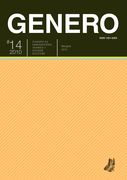„Drugarice“ Ustvolska i Gubajdulina: o statusu kompozitorki u Sovjetskom Savezu
"Comrades" Ustvolskaia and Gubaidulina: On the Status of Women Composers in the Soviet Union
Author(s): Ivana MedićSubject(s): Gender Studies
Published by: Centar za ženske studije & Centar za studije roda i politike, Fakultet političkih nauka, Beograd
Keywords: the Soviet Union; women composers; status; art music; symphony; avant-garde; religion; Galina Ustvolskaia; Sofia Gubaidulina; Dmitri Shostakovich
Summary/Abstract: In accordance with the newly-proclaimed ideology of class and gender “equality” in the years immediately after the establishment of the communist government in the Soviet Union, women - “comrades” - were encouraged to become active protagonists in the country’s social, political and cultural life. Yet, for a long time, the profession of a composer of art music remained almost exclusively male. In this paper I discuss the lives and careers of two Soviet female composers, Galina Ivanovna Ustvolskaia (1919-2006) and Sofia Asgatovna Gubaidulina (1931-), who both faced numerous challenges, being women in a “men’s profession”, and had to wait for many decades for their oeuvres to get the recognition that they deserved. Their status in the Soviet Union was further complicated by the fact that they both refused official commissions and decided against joining the Communist Party, but also by the non-commercial and uncompromising character of their music and the fact that their works were inspired by religious and mystical phenomena. The most important issue discussed here is the perception of Ustvolskaia as the more “masculine” and Gubaidulina as the more “feminine” composer. My goal is to demonstrate that not only their music but also the events from the two composers’ personal lives, their relationships, ethnicities, and many other factors, influenced the reception of their works (and their artistic personalities in general), both in the Soviet and in the broader European context.
Journal: Genero: časopis za feminističku teoriju i studije kulture
- Issue Year: 2010
- Issue No: 14
- Page Range: 69-92
- Page Count: 24
- Language: Serbian

